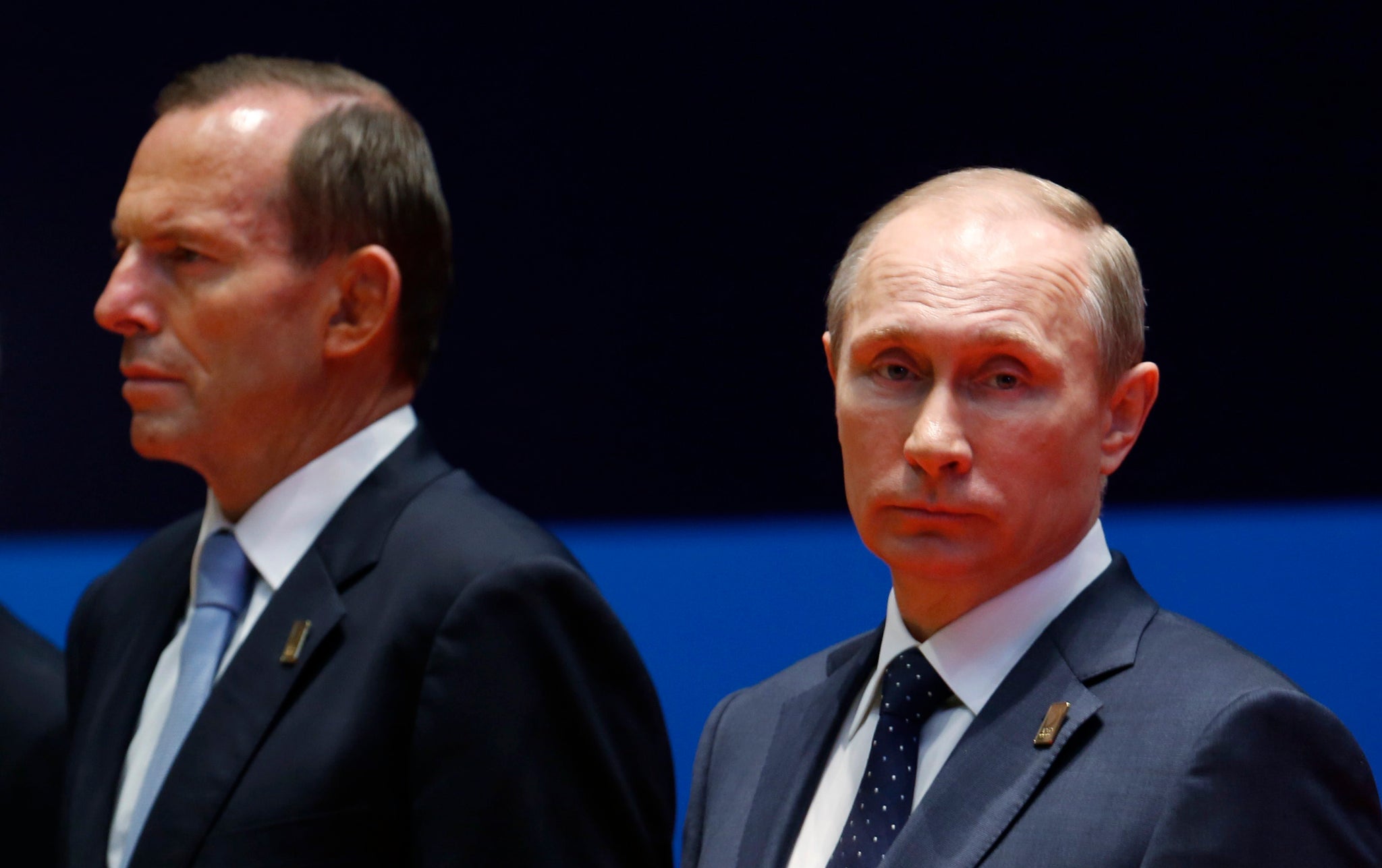Australia considers uranium ban as part of further sanctions against 'bully' Russia
Prime Minister Tony Abbott said that if Russia moves beyond the border into Ukraine it could amount to an invasion

Australia has further aligned itself with its European allies in the Russia-Ukraine crisis by considering further sanctions – including the sale of uranium – against the Kremlin, while also declaring that Putin’s government is a “bully”.
Prime Minister Tony Aboott said that Russia’s decision to ban the importation of western foods in retaliation over sanctions will have little effect on Australia.
Last year, Australia exported roughly AUS$400million (£221million) of agriculture products to Russia – one per cent of its total.
Ukraine crisis: Bridges blown up as rebels retreat
Show all 10Sanctions were levied by the EU and US on Russia following what they said was its involvement in arming pro-Moscow militants and its stoking of tensions in the east of Ukraine where Crimea has been annexed.
Companies such as Rosneft and individuals including Russian military officer Igor Sergun were hit with the economic sanctions.
Russia was also accused of being indirectly connected to the shooting down of Malaysia Airline Flight 17, in which 298 civilians lost their lives.
“Let's be very clear about this - Russia has been a bully. Russia is a big country trying to bully a small country,” Mr Abbott said, who also criticised the assembling of Russian soldiers at the Ukrainian border.
“If there is any movement by Russian forces across the border, it won't be a humanitarian mission, it will be an invasion.
“And I say to President Putin that if he wants to be regarded as a world leader, as opposed to becoming an international outcast: Hold your forces back. Stay behind the border. Let the business of Ukraine be sorted out by Ukrainians.”
Australia, which had joined the EU and US in imposing the initial sanctions, said it was considering going further.
Foreign Minister Julie Bishop confirmed that “other options”, not just those on individuals and companies, could be explored.
When asked by reporters if that could include the banning of the sale of uranium to Russia, Ms Bishop said “everything’s on the table,” according to The Age.
Russia’s one-year import ban includes the restriction of meat, fish, milk and milk products, fruit and vegetables from the US, the EU, Australia, Canada and Norway.
It is expected to hit Russian citizens and western farmers the hardest, with EU officials now assessing whether compensation should be given to the producers missing out on $8.7billion (£5.2billion) worth of exported goods, the Wall Street Journal reports.
Mr Abbott said that he had been cautious of implementing tough sanctions on Russia while Australian police were still at the MH17 crash site, however now they’re returning, he felt compelled to speak up.
“We are working towards stronger sanctions. Now that our personnel are in the process of returning to the Netherlands after largely completing operation 'Bring them Home,' certainly you will find increased sanctions by Australia.”
Thirty-eight Australian residents died in the MH17 crash.
Subscribe to Independent Premium to bookmark this article
Want to bookmark your favourite articles and stories to read or reference later? Start your Independent Premium subscription today.

Join our commenting forum
Join thought-provoking conversations, follow other Independent readers and see their replies